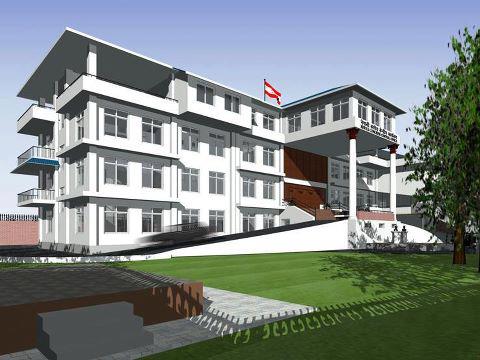Congress PP leader election on April 6
Kathmandu, March 27
Nepali Congress has set its election for Parliamentary Party leader on April 6.
Party president Sher Bahadur Deuba and leader Ramchandra Paudel are preparing to contest for the PP leader, who will formally become the party’s prime ministerial candidate.
The PP leader’s position was lying vacant after Sushil Koirala died on February 9.
Both Deuba and Paudel are preparing for the contest. While Deuba is almost certain to contest, Paudel’s side has not yet decided as some leaders are suggesting they field either Prakash Man Singh or Ram Sharan Mahat if Paudel’s victory is not certain.
A meeting of the Paudel faction held at his residence in Boharatar today decided to make more attempts to nudge Deuba to unite party by supporting Paudel as PP leader, said Paudel’s personal secretary Chiranjibi Adhikari.
If consensus remains elusive, Paudel’s team will contest, he said. Paudel has called a meeting of the NC’s parliament members at his home tomorrow afternoon to win their support, he said.
A meeting of the NC’s election committee held at the party’s PP office in Singha Durbar decided to hold the PP polls on April 6 and election of the PP’s working committee on April 8, said committee Coordinator Ramesh Rijal.
The candidates can file nominations one day ahead of the set dates, according to him.
Committee member Guru Raj Ghimire, however, objected to the decision to hold election of PP leader and working committee on separate days.
After Rijal and another member Surendra Pande, both of from Deuba’s faction, pleaded for holding separate elections to make the PP polls strategically supportive for Deuba, Ghimire, who belongs to Paudel’s faction, objected, said sources close to Paudel.
The working committee will comprise 29 members including PP leader, deputy leader, chief whip, whip, secretary and members. The PP leader can nominate the deputy leader, chief whip and whip, while other positions are elected ones.
Also, the meeting proposed some amendments in the PP’s statute to change the representation of five development regions to seven provinces and forwarded it to the party’s Central Working Committee for approval.
The committee also proposed increasing the existing five clusters for proportional representation of oppressed groups to eight to make the PP’s statute compatible with the provisions of the new statute, he said.






